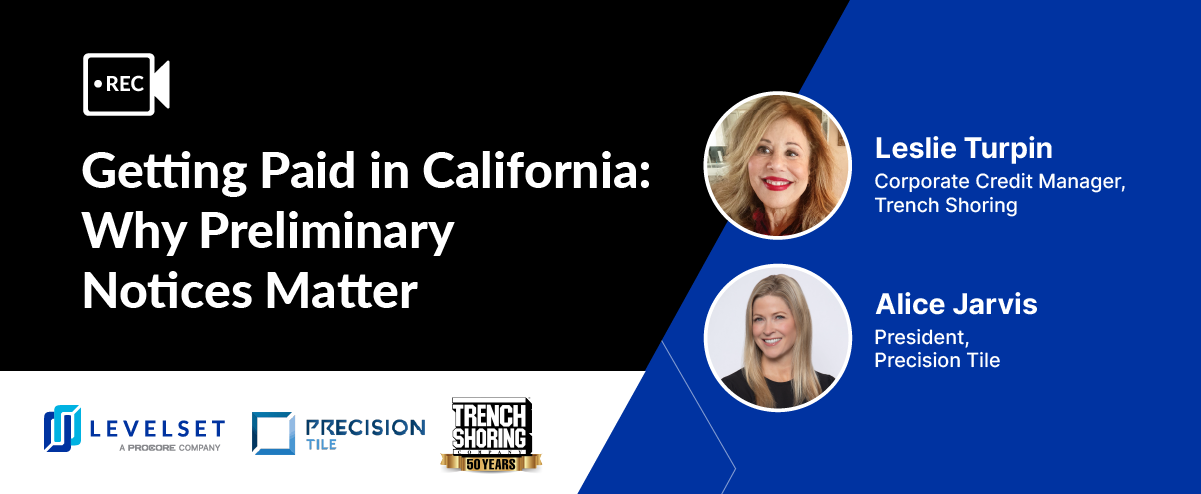Webinar Hub
Become the payment expert for your construction company
Learn how to get paid faster by watching webinars led by construction
attorneys, financial experts, and industry thought leaders.

Ferguson’s Mission-Driven Leadership: How Purpose Powers Success
Want to get notified about upcoming webinars?
Never miss your opportunity to attend a webinar or live
event hosted by Levelset.
event hosted by Levelset.
All webinars

Ferguson’s Mission-Driven Leadership: How Purpose Powers Success
MariaJenniferLisaCatherine
Register

Getting Paid in California: Why Preliminary Notices Matter
LeslieAlice
Watch now

Learn From SRS Distribution: How to Attract and Develop Construction Credit Managers
CharlesChris
Watch now

How the ERC Tax Credit Can be Used by Construction Businesses
DavidPhilip
Watch now

Credit, Year End Clean-Up & Secret Santa
LoriD'Ann
Register

Credit Applications, Thanksgiving Traditions & FUN!
TheaLoriLisa
Register

Integrating Your Systems: The Shortcut to Protecting Your Payments and Saving Time
Danny
Watch now

Materials Financing 101 (and why it’s the perfect partner to your lien rights software)
RaneWhitley
Watch now

Credit Applications, Costume Contest & Prizes
Thea
Register

Why Contracts Aren’t Enough to Get You Paid
Michael
Watch now
GET CERTIFIED
Levelset Payment Academy
Learn the knowledge, skills, and tools you need to get paid faster, improve cash flow, and build successful relationships in the construction industry.
Explore free courses
150 Expert Webinars
205 Total webinars
36 Payment Experts
